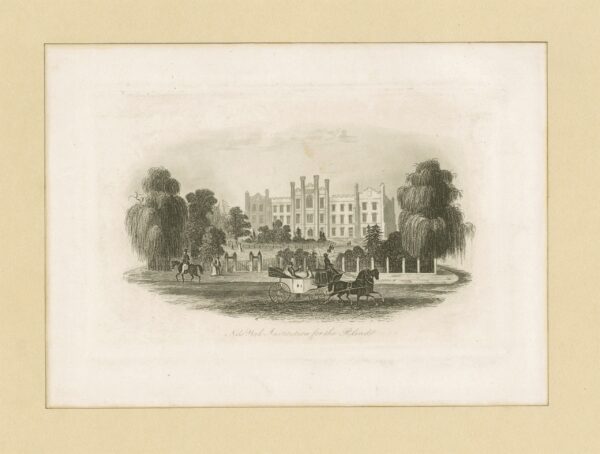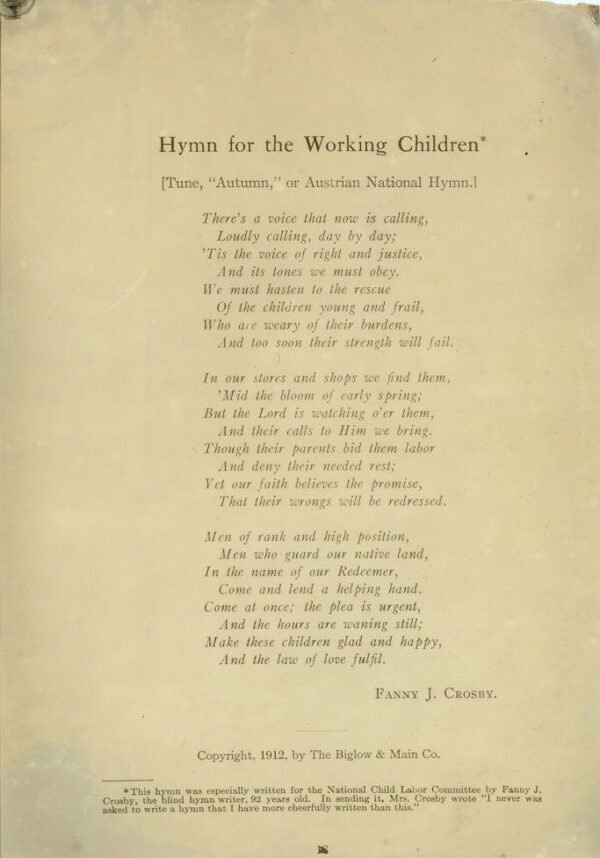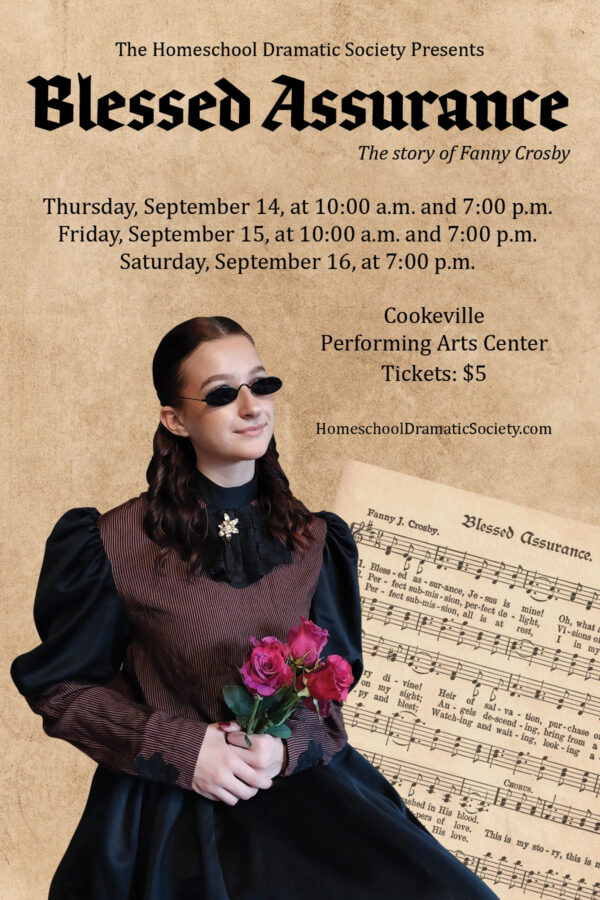Blessed Assurance: The Story of Fanny Crosby, Part 2
Good Morning, Mamas,
I want you to know how much I appreciate your emails and the kind comments you leave with posts. I want to answer each one, but some days are simply too full. I have been so hit and miss on this during busy seasons in my life, such as the one I am experiencing now. I do read and appreciate them and I try to answer. Please be patient with me if I haven’t written you back. Not receiving an answer does not mean I haven’t read your response. They bless me very much. I am woefully behind in approving comments and answering emails right now and I apologize. Please don’t let it keep you from writing because they do mean a great deal to me and I often share them with Ray, too. And now, for today’s post . . .
On day three of practice for the 24th annual production of our local Homeschool Dramatic Society, I’d like to share more about the life of the play’s heroine, Fanny Crosby.
Following her own studies at the New York Institution for the Blind, Fanny became a teacher there. She taught grammar, rhetoric, ancient history, and modern history.

New York Institution for the Blind,
courtesy The New York Public Library Digital Collection.
While Fanny was teaching at the school, some of the teachers and students went on a goodwill tour for the school. They traveled on a boat up the Erie Canal, stopping in towns along the way. They sang, gave speeches, recited from memory, and described their school. The teachers and students went all the way to Buffalo on the canal and then went on to visit Niagara Falls. They stood on Goat Island, hearing the rush of the waters, while a teacher described Horseshoe Falls to them.
When Fanny was 24 years old, she published The Blind Girl and Other Poems, her first book of poetry. It included her first published hymn. During her lifetime, she wrote two other books of poetry, a book of short stories and poems, and an autobiography. She also wrote several secular songs that sold well.
In 1844 Fanny and others from the school went to Washington, D.C., to help people be aware of blind people. Fanny gave a poetic address to a joint session of the U.S. Senate and House of Representatives. In the audience were two future presidents, James Buchanan and Andrew Johnson. While in Washington, she met and received a hand clasp from former president John Quincy Adams. He was in his mid-70s. She heard him give a speech about the Smithsonian Institution.
Fanny met many famous people while teaching at the school. Among them were Presidents John Tyler and James K. Polk. She also met the newspaper editor Horace Greeley. When Greeley heard one of Fanny’s poems, he asked her to write for his newspaper. Fanny’s grandfather walked four miles to buy a newspaper that had his granddaughter’s poem in it.
At one time, Grover Cleveland’s brother William was the head teacher at the school. When Grover and William’s father died, William brought Grover to work at the school. He became a clerk. Since the 16-year-old Grover was taking his father’s death very hard, William encouraged Fanny to visit him from time to time to encourage him. Fanny and Grover Cleveland became good friends. Young Grover Cleveland enjoyed helping others. He often copied Fanny’s poems for her. Their friendship continued even after he became the 22nd president of the United States.
In 1864, at age 44, Fanny met William B. Bradbury, a composer of hymn melodies. He told her that he had wanted her to write songs for him for many years. For four years, until his death in 1868, Fanny wrote many songs for him. He knew that he would not live long and encouraged her to continue writing after his death. Fanny did just that.
Believing that one must be in a proper mood to write a hymn, Fanny would sit alone and pray for thoughts and feelings. She said that she never attempted to write a hymn without asking the Lord to be her inspiration. She kept hymns for a while before publishing them, going back over them to improve them. Life sometimes inspired Fanny. Once when she needed something in particular, she asked God for it and He supplied it. After that answered prayer, she wrote “All the Way My Savior Leads Me.”
Tunes that had already been written sometimes helped Fanny to write hymns. When she wrote “Blessed Assurance,” she set it to a tune that a friend had already written. Fanny thought it was one of the sweetest tunes she had heard in a long time.
Once American hymn composer William Doane came to see Fanny. He asked her to put words to a tune he had written. He was in a hurry because he had to catch a train in 40 minutes. He played the tune for her. She told him that his music said, “Safe in the Arms of Jesus.” She scribbled out some words and told him to read it on the train. That hymn became one of Fanny’s most famous and was one of her personal favorites.
Fanny’s mother, who had sacrificed so much for her little blind daughter, lived into her 90s and got to enjoy her daughter’s fame.
When Fanny wrote her autobiography at age 83, she was traveling around the country visiting churches, speaking, and reciting her poems to audiences. She believed herself still in the prime of life and believed that hymn writing was her true life’s work. She wrote, “I seem to have been led, little by little, toward my life-work,” and “My work grows sweeter and grander to me each day.”
In 1904 Americans concerned about the welfare of working children organized the National Child Labor Committee. Its stated mission was “promoting the rights, awareness, dignity, well-being and education of children and youth as they relate to work and working.” The committee asked Fanny Crosby to write a hymn. She wrote “Hymn for Working Children” when she was 92 years old. When she sent the committee the hymn, she wrote: “I never was asked to write a hymn that I have more cheerfully written than this.”

Fanny J. Crosby died just before her 95th birthday. Her tombstone says simply, “Aunt Fanny” and “Blessed assurance, Jesus is mine. Oh, what a foretaste of glory divine.”
I encourage you to introduce your children to Christian hymns, even if your church sings modern praise songs almost exclusively. Hymns by Fanny Crosby and many other Christian hymns were a beautiful part of my childhood spiritual training and that of our children. I am grateful that they were.
I will sing to the Lord as long as I live;
I will sing praise to my God while I have my being.
Psalm 104:33
If you live in the Cookeville, Tennessee, area or are traveling nearby in mid-September, we would love to see you at Blessed Assurance: The Story of Fanny Crosby. Be sure to buy tickets in advance through the Cookeville Performing Arts Center website. With 101 performers this year, we expect lots of relatives. We have had sold out performances in other years.


